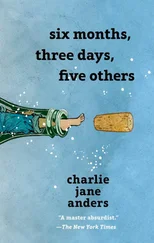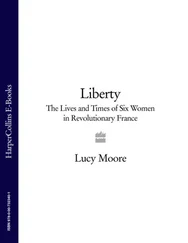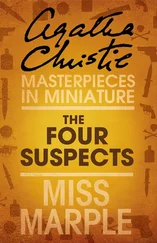Champi is known all over the world as the Face of Bhopal. There was a big industrial disaster in Bhopal more than twenty years ago. Poisonous methyl isocyanate gas leaked out from the Union Carbide plant and all those who inhaled it died, or went blind or became mad. Champi's mother Fatima Bee was living in Bhopal at the time. She too was affected by the gas, although she didn't know it then. She gave birth to Champi five years later. When the doctors saw the newborn baby, they told Fatima Bee that the gas had caused the blindness and all the deformities. It still intrigues me how the gas was locked up in Fatima Bee's body for five years and did nothing to her, yet pounced on poor Champi the moment she was born.
The people affected by the gas were promised some money by the government, but it didn't cover people like Fatima Bee who were affected later. So she joined an organization called Crusaders for Bhopal which has been fighting for compensation. As happens in our country, the case has been dragging on for over twenty years with no resolution in sight. Every three months Fatima Bee would come to Delhi, do the rounds of the Supreme Court, participate in a couple of rallies, and go back to Bhopal. Ten years ago she decided to move to Delhi permanently, along with her husband Anwar Mian and Champi. They lived in the Sanjay Gandhi slum in Mehrauli, which is full of Bangladeshi refugees. Anwar Mian found work in a cement factory in Mahipalpur. I am told he was a grim, taciturn man who drank like a fish, smoked twenty beedis a day and hardly ever spoke to anyone. One fine day, he went to work as usual, returned home in the evening as usual, and dropped dead during the night. Bole toh, heart failure.
It was a big blow to Fatima Bee, who now had to support Champi all alone. She was forced to start sewing clothes for a living. That is how she came into contact with Mother, who got a couple of my shirts stitched by her. She was a superb tailor. The shirts she made me fitted me more perfectly than anything I have worn since. Unfortunately, Fatima Bee also fought a running battle with illness. Three years ago she passed away of tuberculosis, leaving Champi all alone. That is when the Crusaders for Bhopal people came to the temple. They sought a volunteer family which would be prepared to take care of Champi's upkeep in return for three hundred rupees (subsequently increased to four hundred) per month. There were no takers for their offer, till Mother showed up. She is the queen of all do-gooders, ready to feed even a sick snake. Mother took one look at Champi and embraced her like her own daughter. There was some grumbling from the temple management. The slimy priest, who makes a tidy profit from the daily offerings, objected to a Muslim girl being given refuge inside the precincts of a Hindu temple. But Mother had made up her mind. 'What kind of priest are you? Does humanity have a religion?' she rebuked him, silencing his protest. Since then Champi has lived with Mother and me in our house at the back of the temple. I suppose I could call her a sister of sorts. Crusaders for Bhopal pay Mother the regular monthly stipend and take Champi away for just one day each year – 3 December, which they call Bhopal Action Day. They try to raise awareness of the disaster by going on a huge rally, often with volunteers in outrageous costumes. Last year they had people dressed as skeletons. But the star of the show is always Champi, who doesn't need any make-up to remind people of the horrors of Bhopal.
When Champi first came to live with us, Mother promised her that we would get her face set right. We even showed her to a plastic surgeon. He told us that the surgery would cost the astronomical sum of three hundred thousand rupees. Since that reality check we stopped having conversations about Champi's face. She accepted our helplessness just as we accepted her grotesqueness.
Now I am trying to rekindle that old hope, but Champi remains adamant.
'I don't want to benefit from gangsters' money,' she declares after I recount the full saga of how I acquired the briefcase.
'How do you know it belongs to gangsters?' I counter.
'Who else would leave it in a dustbin? And what if they trace it to you?'
'They won't. Now this money is mine. And I am bloody well going to enjoy it.'
'Ill-gotten gains can never lead to enjoyment. You have to think of the consequences.'
'Life is too short to worry about the future.'
'It may be for you, but not for me and Mother. She worries about you all the time.'
'You can tell her to stop worrying. From tomorrow she need not even work. I have enough to feed all three of us for a hundred years.'
'Don't let your head swell,' Champi cautions me. 'Better to lie low for a while before making your grand plans.'
Her advice is sound. 'You are right, Champi,' I nod. 'No one must know about this briefcase. I will not touch it for another week. And if no one comes looking for it by then, we can breathe easy, start spending some of the dough, get your operation done.'
'I don't want a penny of your loot,' Champi says firmly. 'But before doing anything, won't you take the blessings of Lord Shiva? Go and bow your head before your God at least today.'
'What did God have to do with that briefcase? I don't need to offer Him any thanks.' I dismiss the suggestion with a wave of my hand.
Champi sighs. 'I shall intercede for you with Allah, the Forgiver of Sin, the Bestower of Favours. La ilaha illa huwa, to Him is the final return,' she says with both hands raised to her face.
I shake my head. Considering what has happened to her eyes and face, Champi's faith in God is even more remarkable.
'Don't breathe a word about the briefcase to Mother,' I instruct her and saunter out towards the main gate.
It is a Monday, Lord Shiva's day, and the temple is already filling up with worshippers. By noon there will be a half-kilometrelong queue for the darshan.
The Bhole Nath Temple of Mehrauli is a recent construction, no more than twenty years old. It was probably built for the same purpose that most temples in the city are built – to grab land. But its fame spread quickly and it has now become a place of pilgrimage. Devotees believe it has wish-fulfilling properties and they can be seen thronging the massive marble hall at all times of the day, sitting on the floor meditating or chanting. This is also where Mother can be found in the mornings, diligently mopping the floor, scrubbing the tiles, rinsing the side drains of any obstruction.
Several useful activities can be conducted on the temple premises, but the only one which interests me is girl-watching. Because Shiva is considered to be the granter of good spouses, there is a constant stream of unmarried maidens and young brides entering the temple to pray for a suitable husband or a harmonious family life. If only the chicks could be made to realize that an excellent groom is lurking just round the corner, in Kholi Number One!
The temple has been a part of my existence since I was six. I have been a witness to its growth and expansion. I have seen the garden bloom and trees populate the compound. I have grown up watching the increasing prices of flowers and sweets and the widening girths of sweet-makers and priests.
Some of the temple's luck has also rubbed off on us. Before Mother started working here, we lived in the Sanjay Gandhi slum, in a makeshift hut made with corrugated-metal sheets. We had no electricity and no water. Mother cooked with cow-dung patties on a mud hearth which used to fill the entire hut with smoke and make my eyes water. Now we have a pukka one-and-a-half-room house, with a paved brick fireplace, a ceiling fan and even cable TV (which I have siphoned off the temple's connection). Of course, it is still extremely cramped for three people. We have divided the main room into two parts, separated by a wooden partition. I have one side, with my mattress and a small wooden table, and Mother and Champi have the other side. I have decorated the walls on my side with posters of Salim Ilyasi and Shabnam Saxena, though they are mostly obscured by my trousers and shirts draped over the wall-mounted hanger. Mother has some faded old calendars with gods and goddesses on her walls. She also has an aluminium trunk containing some of her clothes. Its top serves as a mantle for a framed black-and-white picture of Father, garlanded with brittle roses. It is Mother's most prized possession. She sees her husband in that photograph, but I see a martyr.
Читать дальше












